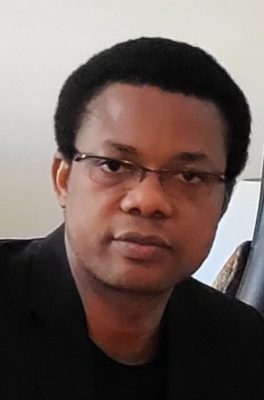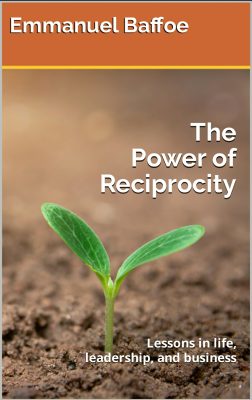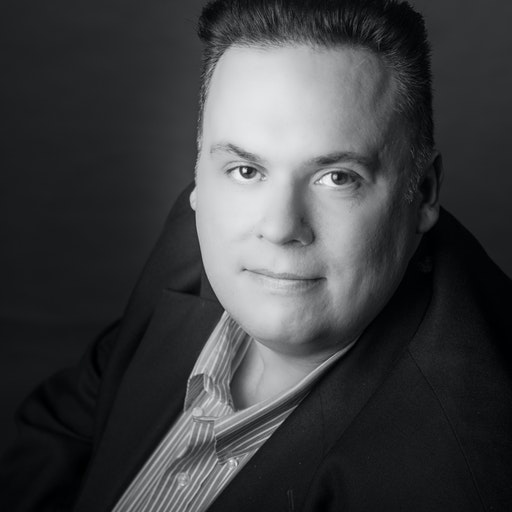Mount Kisco Priest Pens First Book
News Based on facts, either observed and verified directly by the reporter, or reported and verified from knowledgeable sources.
Father Emmanuel Baffoe, a priest at St. Francis of Assisi parish in Mount Kisco and a native of Ghana, just published his first book, “The Power of Reciprocity – Lessons in life, leadership, and business.” We spoke with Baffoe about his intended takeaways from the book, his calling as a priest and life in Ghana.

What’s the premise for your book?
It’s a masterpiece that brings warmth to cold hearts. My reflection on the book’s title is built on the premise that “a behavior that is rewarded must be given maximum thumbs up for continuity, whereas a punitive behavior should be eschewed in the most emphatic way.”
How and when did the idea for the book come about?
I thought of writing a book some years back but didn’t know how and when to go about it until the COVID-19 lockdown. My experiences and reflection during that time brought me the idea to pen down and share with the world.
What was your process for writing the book?
Interestingly, my best idea and insight come from time alone. Awkward as it may seem, time alone gets me thinking about having insightful ideas. However, the process of writing this book has also come from my studies and sticking to my routines of constant learning and writing and listening and observing.
Did you have it “all figured out” when you began to write it, or did your thoughts and messages for the book come to you as you wrote it?
I had almost every idea and message of the book “figured out.” But Ed Perratore, who has authored three books, happens to be my chief editor and helped shape my ideas and messages as well. Your question reminds me of my final decision on the book’s title. At first, I had only Reciprocity in mind, but upon further reflection on the book’s content, the final title came up last. I remember Ed was very happy about it.
What are the main takeaways you hope people who read the book will walk away with and get?
The book is about the choices we make at every level of human existence – either as a parent or not, single or married, leader or manager, in private or public businesses. The Power of Reciprocity is built on the “either” cases of choices of both good or bad – small daily actions which lead to bigger results.
The book emphasizes that generosity, kindness, love, good leadership, good parenting and positive thinking have ripple effects. And that actions have consequences; ideas and knowledge only have consequences when acted upon. Our choices are impactful.
The success and failure of humanity, the harmonious peace and the disarray of the world are the results of the choices we make.
I understand you’re planning to donate some of the proceeds from the book to charity.
 As a Catholic priest hailing from Ghana, I have first-hand experiences of rural folks struggling to get the basic necessities of human life. Unfortunately, in this 21st century, still, some parts of Ghana barely have access to clean and safe water, food, shelter, clothing and good health care. Hence, a plan to donate some of the proceeds from the book comes to mind for action.
As a Catholic priest hailing from Ghana, I have first-hand experiences of rural folks struggling to get the basic necessities of human life. Unfortunately, in this 21st century, still, some parts of Ghana barely have access to clean and safe water, food, shelter, clothing and good health care. Hence, a plan to donate some of the proceeds from the book comes to mind for action.
How and when did you know that the priesthood was your calling?
Great question! My call into the priesthood began with an encounter – an encounter with God through his words from a priest. After I completed high school, confused in figuring out what to do with my life, I heard a unique voice from a priest who’s deceased now, say in one of his vocation drive homilies, “Unlike other jobs, the priesthood is a living so that others may also live. It is a divine call to serve. It is love in action. The joy of embracing the Priestly life is to see lives transformed by one’s life.” His statement captured my attention. And so, I embraced it with prayer, and I learned not to ask what am I to gain in pursuing this path, but rather what am I to give to transform lives. I believe I’m living my life according to the plan of God, which brings me joy and happiness.
What’s your take on the trend of declining attendance and participation in the church by Americans? Does that trend concern you?
In my opinion, the decline you’re referring to is a global take-on of Christendom. Historically, there were priests and lay people who stood up for the Church even in a hostile environment and suffered for it while the Church grew in numbers. In the 21st century, some have given up on the Church. Others even say, “We no longer need to go to church,” and that “a priest has disappointed me. Therefore, I wouldn’t go to church again.” Another person also lamented, “I’m a religious person, and I really want to come to church, but I fear to lose friends if I go all out for Christ.” Some, too, respond in four words, “I don’t have time,” “I’ve work to do.”
Although these excuses keep declining attendance and church participation, the good news is that some young people of this generation are longing for a deep-seated desire to feed their souls in the church. In recent days, there’s also been a growing number of men and women in our Christian communities who are waking up from their slumber and buckling their shoes to go to church and make good families. I believe that inasmuch as the chart shows a decline, I still see families returning home.
How and why did you come to Westchester?
A diocesan priest promises to abide by where the local ordinary (i.e., the bishop) sends him to serve God’s people. Hence, it’s my bishop who asked me to come to Westchester to replace a priest whom he called back to Ghana for a different pastoral assignment. I’m in Mount Kisco because my pastor, Rev. Steven Clark, agreed to work with him, having consented to my bishop’s request. I’m in my fifth year now. It’s an awesome experience with amazing people of Westchester.
What was life like back in Ghana?
Generally, life in Ghana is good, even though we have other national challenges. The people of Ghana are warm and very friendly. I take this opportunity to invite anyone to visit Ghana. We have exciting and interesting places. The people are happy to help visitors and the like to get to know each other through socializing even before (conducting) business, especially in the local markets.
Was it a culture shock coming here? Or was it like you were expecting it to be?
People differ, as culture differs. The way of life in Ghana is different from the U.S. I remember back in Ghana, my mother ran out of salt, and it was night, having returned from the farm. All nearby shops had closed, and no one could go far from the house to buy salt. My mother asked one of my younger sisters to get two spoons of salt from a neighboring house across the street. Interestingly, Ghana may have its cultural shock, while someone may interpret it as needy, but it’s not so. My village gives that kind of sense of community. No community is perfect, though. It’s a cultural shock in the U.S. to knock at someone’s door around 8 p.m. and say, “Hey, neighbor, my mom sends me to get two spoons full of salt from you.”
What’s next for you?
Three things for now: to concentrate on my doctoral studies, market the book and maybe come out with another book after my doctoral studies.

Robert Schork is Examiner Media’s Digital Editorial Director.
